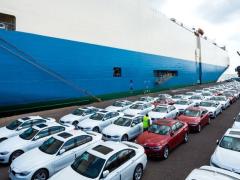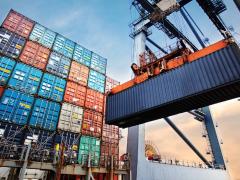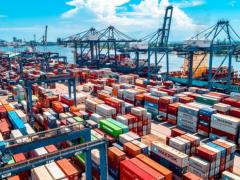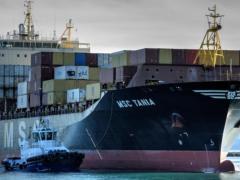The global courier and express delivery industry is undergoing rapid transformation, driven by surging cross-border e-commerce, growing demand for same-day and next-day delivery, and the increasing use of AI in logistics. “We’re seeing a shift toward platform economies where aggregation and automation are key differentiators,” said Matthew Strybis, CTO of STACKS Africa. “In South Africa and across Africa, the trends include rapid technology adoption for multi- carrier management, increased focus on customer transparency through real-time tracking and proactive communication, as well as the strategic use of regional consolidation hubs to optimise last-mile costs.” According to Strybis, the boom in e-commerce has fundamentally reshaped the logistics sector. “The shift from B2B to B2C logistics requires entirely new operational capabilities – from handling thousands of small parcels instead of pallets, to providing consumer-grade tracking experiences,” he told Freight News. “This transformation drove us to develop STACKS Connect as a technology-first solution. The platform enables instant rate quotes, automated order fulfilment, real-time tracking with proactive notifications, and seamless integration with e-commerce platforms.” Strybis added that this shift had exposed a clear gap in the market. “We’ve seen traditional freight forwarders struggle to adapt, which creates opportunities for tech-enabled operators who can bridge the gap between traditional logistics expertise and modern e-commerce requirements,” he said. Despite rapid growth, the courier sector in Africa faces persistent challenges that threaten to slow momentum. “The industry grapples with several critical challenges: prohibitive last-mile delivery costs in remote and rural areas, inadequate infrastructure in certain regions limiting service expansion, and complex customs clearance procedures that create delays and uncertainty in cross-border trade,” said Strybis. He also pointed to currency volatility as a factor affecting pricing stability, while global e-commerce giants continue to raise the bar for service expectations. “Local logistics providers are under pressure to match international service standards at local price points,” he said. But despite the challenges, volumes are continuing to show consistent double-digit growth, particularly in cross-border e-commerce shipments. “This surge is driven by multiple factors: the maturation of African e-commerce markets, improved payment infrastructure enabling online transactions, more competitive international shipping rates through aggregation, and critically, the ease of integration our platform provides,” said Strybis. “Smaller merchants who once struggled to access professional logistics services can now tap into global supply chains using a range of integration options – from APIs to plug-and-play tools and dashboards.” The outlook for the sector is extremely positive, in his view. “We anticipate robust growth continuing, with cross- border B2C volumes potentially doubling as more African merchants discover global markets and international brands seek African consumers. “However, this growth will coincide with intense competition and margin pressure. Success will depend on three factors: service reliability and consistency, technology adoption for operational efficiency, and the ability to offer value-added services beyond basic delivery.” LV
Cross-border B2C volumes predicted to double
Comments | 0












